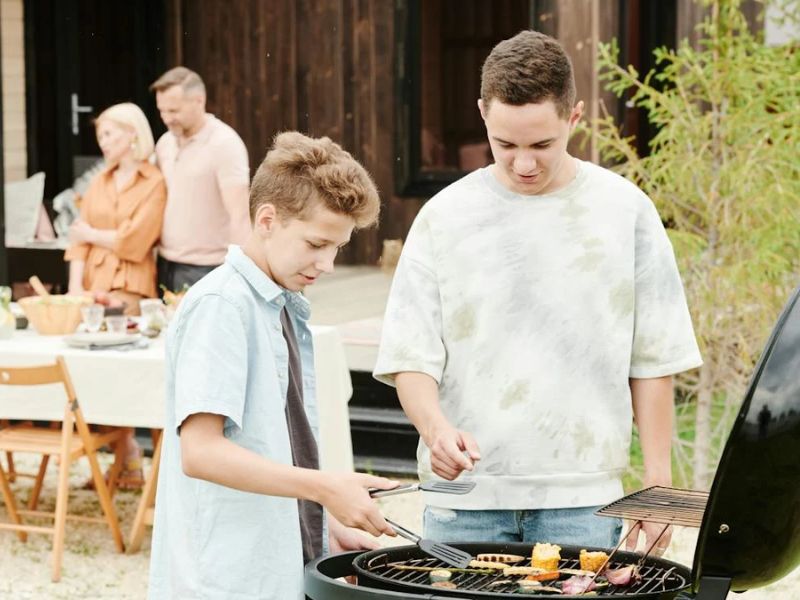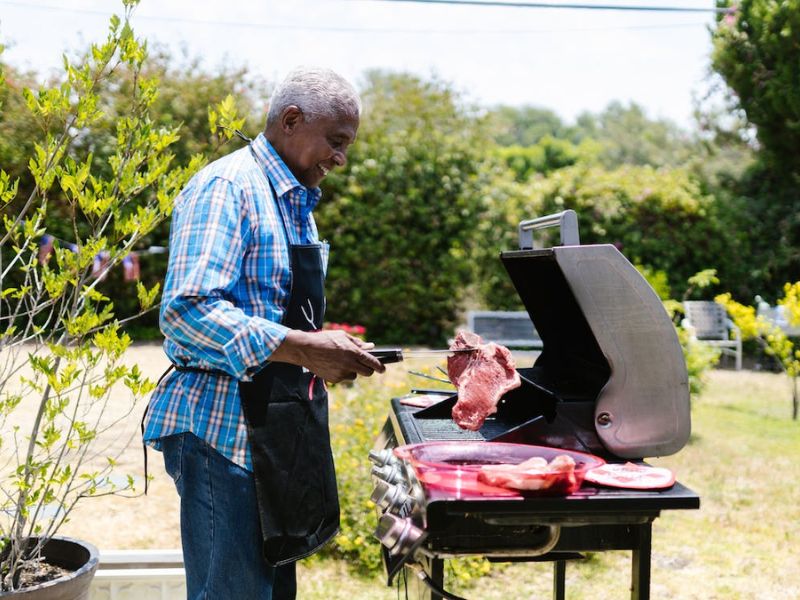Outdoor grilling is a beloved pastime for many, especially during the warm summer. However, it’s essential to be aware of the environmental dangers associated with this popular activity. From air pollution to excessive waste generation, grilling can harm the environment. Fortunately, there are simple swaps you can make to enjoy your barbecue while minimizing its ecological footprint.

Image Credit: Pexels/Julia M Cameron
Air Pollution
Grilling releases harmful pollutants into the air, including volatile organic compounds (VOCs) and particulate matter. These emissions contribute to smog formation and can adversely affect air quality. To reduce air pollution, consider using cleaner fuel alternatives, such as natural gas or propane, instead of charcoal or wood. Gas grills produce fewer emissions and have a smaller carbon footprint.
Deforestation
Charcoal and wood used for grilling often come from unsustainable sources, leading to deforestation and habitat destruction. Look for charcoal certified as sustainably sourced or made from recycled materials. Additionally, consider using grilling accessories like lava rocks or ceramic briquettes, which help distribute heat evenly and reduce the need for excessive charcoal consumption.
Excessive Waste
Disposable plates, utensils, and food packaging contribute to the excessive waste generated during outdoor grilling. Instead of single-use items, opt for reusable or compostable alternatives. Use durable plates and utensils to be washed and reused, and choose compostable or biodegradable food containers. Composting food scraps can also help reduce waste and provide valuable nutrients for your garden.
Water Conservation
Grilling often involves cleaning utensils and grill grates, which can lead to water wastage. Be mindful of your water usage by using a brush or scraper to remove food residue from grates instead of relying solely on water. Consider using a bucket or basin to collect water for cleaning, which can then be repurposed for gardening or other household tasks.

Image Credit: Pexels/RDNE Stock project
Energy Consumption
Electric grills offer a more energy-efficient option than traditional charcoal or gas grills. They consume less energy and produce fewer emissions, making them a greener choice. If you prefer the taste of charcoal-grilled food, consider using an electric starter instead of lighter fluid to ignite the coals, as it eliminates harmful chemicals.